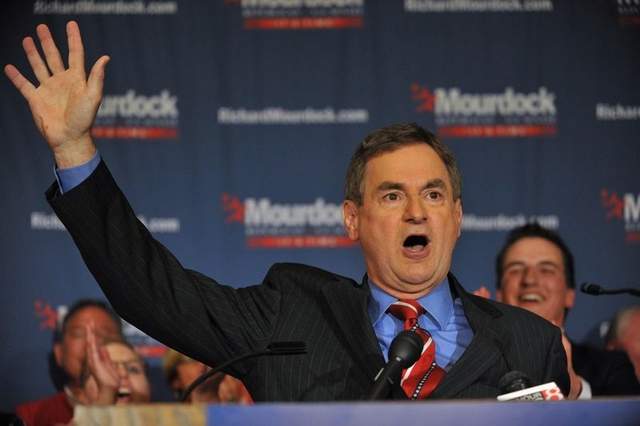Richard Mourdock's Primary Victory Spotlights Partisanship and Policy


Indiana State Treasurer Richard Mourdock's Republican primary victory last week over Senator Richard Lugar marks a changing of the guard. By expelling the Senate's longest tenured Republican by 20 points, Lugar was resoundingly repudiated. But does his purported successor present a better option for Indiana?
The perception leading into this primary was that Lugar was too moderate, too willing to work with the Democrats, and he had simply been in Washington too long and thus lost connection with his constituents. When it was discovered that Lugar sold his Indiana residence after winning his first term in 1976 and had basically been living in Virginia ever since, it was a hard fact to dispute.
Lugar couldn't shake the image that he was generally the Democrats' and particularly President Obama's "favorite Republican," especially after Lugar broke ranks to confirm Obama's Supreme Court nominees. While Lugar's legacy requires more than a few sentences to summarize, that many of his eulogists are Democrats seems to bear this perception out.
But whatever one might think of Lugar's penchant for compromise and bipartisanship, it easy to see how Mourdock plans to govern.
Immediately following his victory, Mourdock clearly explained in a New York Times report that "This is a historic time, and the most powerful people in both parties are so opposed to one another that one side simply has to win out over the other." Not to be outdone, the day after his win Mourdock described compromise and bipartisanship on CNN as "Democrats joining Republicans."
A party's base can find such bravado enlivening, but it ought not be conflated with philosophical integrity. On the one hand, there is a matter of clinging to one's principles. But on the other, is such preordained intransigence likely to devolve into knee-jerk partisanship? Will simply voting against Democrats be a sign of conservative purity?
Then again, bipartisanship is not all it's cracked up to be. Such boondoggles as the Patriot Act, Iraq War, Medicare Part D, and TARP were all passed with bipartisan consent in a decade that was itself marked by polarized politics. Is Mourdock the type of conservative who can be counted on to break with party leaders and vote against such Republican initiatives as those above? After all, they each meet Mourdock's definition of bipartisanship because they involved Democrats coming over to vote for Republican measures.
It's too early to determine what kind of senator Richard Mourdock might be. He has to survive November's US Senate election against Democrat Joe Donnelly first. But Mourdock's primary victory should also not be overestimated. Lugar is gone because as a 36-year incumbent he inevitably accumulated a record with vulnerabilities and he ran into a candidate with statewide recognition who was backed up by an organized opposition.
But Mourdock should also not be confused as a Tea Partier par excellence. A three-time loser in congressional elections before finally winning state treasurer, Mourdock has been trying to be a Washington politician for over twenty years. He may prove otherwise, but when it comes to the hope voters and pundits are placing in Richard Mourdock, voter beware.



